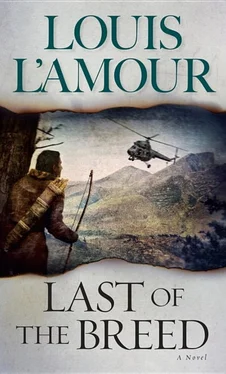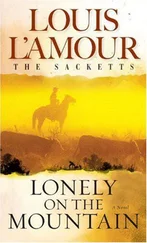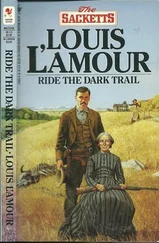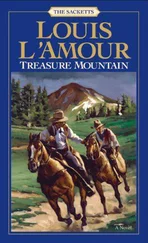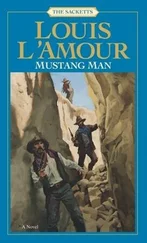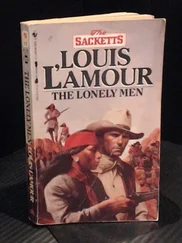Louis L'Amour - Last of the Breed
Здесь есть возможность читать онлайн «Louis L'Amour - Last of the Breed» весь текст электронной книги совершенно бесплатно (целиком полную версию без сокращений). В некоторых случаях можно слушать аудио, скачать через торрент в формате fb2 и присутствует краткое содержание. Город: New York, Год выпуска: 2010, ISBN: 2010, Издательство: Random House Publishing Group, Жанр: Триллер, Историческая проза, Приключения про индейцев, на английском языке. Описание произведения, (предисловие) а так же отзывы посетителей доступны на портале библиотеки ЛибКат.
- Название:Last of the Breed
- Автор:
- Издательство:Random House Publishing Group
- Жанр:
- Год:2010
- Город:New York
- ISBN:978-0-553-89935-1
- Рейтинг книги:3 / 5. Голосов: 1
-
Избранное:Добавить в избранное
- Отзывы:
-
Ваша оценка:
- 60
- 1
- 2
- 3
- 4
- 5
Last of the Breed: краткое содержание, описание и аннотация
Предлагаем к чтению аннотацию, описание, краткое содержание или предисловие (зависит от того, что написал сам автор книги «Last of the Breed»). Если вы не нашли необходимую информацию о книге — напишите в комментариях, мы постараемся отыскать её.
Last of the Breed — читать онлайн бесплатно полную книгу (весь текст) целиком
Ниже представлен текст книги, разбитый по страницам. Система сохранения места последней прочитанной страницы, позволяет с удобством читать онлайн бесплатно книгу «Last of the Breed», без необходимости каждый раз заново искать на чём Вы остановились. Поставьте закладку, и сможете в любой момент перейти на страницу, на которой закончили чтение.
Интервал:
Закладка:
“Do you want me to go out myself?”
“No, no, of course not! If he’s out there we’ve got to find him! We’ve got to get him back!” He glanced at her. “When can you leave?”
She glanced out the window. “It is too late now. I can leave in the morning.”
“Take Stegman. He is a good driver and knows how to care for a car in cold weather. He is also a strong man if you need him, and he’s no fool.”
There was a moment of silence, and then he said, “I shall miss you.”
“And I, you. But I asked to help. I wanted this.”
“Fly to Aldan. You can get a car there.”
He took her to the map and discussed the possibilities. Her questions were few and intelligent. “And if I find him?”
“Bring him back in chains. And I mean, in chains. If you cannot bring him back alive, kill him. I trust your judgment.”
He paused again. “Stegman can do it.”
Her expression was cool. “I do not need Stegman for that. I can do it.”
Chapter 10
The pistol was steady, but the eyes behind it were not those of a Killer. They were cool, appraising, interested eyes. The man spoke, but the words were Russian. There was a question in them, and Joe Mack supposed he was asking who he was or what he was doing.
“I am a man who wishes to be left alone.”
Surprisingly, the man replied in English. “Who are you? What do you do here?”
“I am hiking,” Joe Mack lied smoothly. “I am walking around the world. It was a wager,” he said, “a bet, a sporting thing. I must succeed by next June. I have only to reach Los Angeles.”
Whether the man believed him or not, Joe Mack had no idea. In any event he was stalling for time, trying to see a way out, a way that would take him away from the gun.
“This was permitted?” The man was skeptical, and the pistol did not waver.
“No, it was not. I have no business to be here. I bother no one; I live off the country.”
“If you plan to walk, you have far to go. Winter comes. You had better come with me. I will find you shelter.”
“No,” Joe Mack said.
“No?” The pistol gestured. “I do not wish to shoot.”
“Then do not.” Joe Mack was poised, waiting. “Just walk away and forget me. After all,” he added, “if you take me down there, you will have to answer many questions. One question will be what you were doing up here at this hour.”
The man’s eyes were suddenly wary. “I have come to see the railroad route.” He gestured with the pistol. “I am an engineer. I wished to stand off to see it properly.”
“They will believe that? They will not assume you came to meet me?”
“To meet with you? What is this? How do I know you are here?”
“How, indeed? Of all the places you could go you come right to me. I shall not say the meeting was arranged, but I shall not deny it, either.”
He was considering that, and he did not like it. The KGB would be asking the questions, and they rarely accepted simple explanations.
“You speak well. You lived in America?” Joe Mack said.
“In Canada. I study there.”
“Sit down. Relax. Canada is a good place. I have many friends there.”
He did not sit down. “I must get back. You will come with me.”
Joe Mack shook his head. “Not if you are intelligent. You can take me in, but the KGB is suspicious. They will ask questions. They will want to know how I happened to come here. They will wonder if I did not come because I had a friend. Why, in all Siberia, did I come here? I will deny I ever knew you before. I will deny I came to meet you because you would help me.” Joe Mack smiled. “They will not believe me. It is best for you if you simply walk away, having seen nothing.”
“But if I take you in? A prisoner? They will believe me.”
“I shall hint we were seen together. That you became frightened. I will not say that, exactly, but they will understand. In Russia is it ever wise to know too much? You are an engineer. You have seen the route from here. Walk away as you would have, as if nothing had happened.”
“And when they do catch you? And catch you they will.”
“Perhaps. If they do I shall say nothing, and they will have no reason to ask questions about this meeting. They will not suspect it to have happened.”
Slowly the pistol lowered, but Joe Mack did not move. A pistol shot now, accidental or otherwise, would ruin everything.
“Walk back, take your time, be seen studying the route from here. I shall be gone with no sign of my presence.”
“But I will be a traitor.”
“How? What can I, one man, do to your country? All I wish is to be home, with my family,” he added.
The engineer looked at him. Then he put the pistol away and walked away. Sweat beaded Joe Mack s forehead despite the chill of the wind. Swiftly, he was on his feet and walking away, moving very rapidly down into the larch forest. When he found a game trail he began to run. He ran smoothly, steadily, for several minutes and then slowed to a walk. When the shadows grew long, he went over the ridge again and down toward the construction line.
Far away he could see a cluster of shacks and lights. Here all was quiet. He crossed the line without trouble and went on to the riverbank. Downstream there was a bridge, obviously a bridge for the transport of construction equipment and materials. It might be guarded, but he doubted it. Here, in the middle of Siberia, there would be no reason for it. Yet he would be cautious.
The wind was cold. He shivered, seeking to get down where the wind would not strike him. He found a place behind a construction shack and crouched there, watching the bridge. It was starkly outlined against the sky, but he could see no movement, no sign of life. He waited, still watching.
What about the shack where he waited? There was no light, no sound of movement. Storage for equipment no doubt, yet might it not be the office for the engineer? He listened and watched. About a hundred yards off was what was probably a mess hall and beyond it a square long building he had noticed earlier. There were lights in both places and a sound of music from the square building.
Cautiously, he eased around the corner of the building and tried the door. It opened easily under his hand. He waited an instant and then stepped in. There was a faint reddish glow from the stove.
Waiting, listening, he looked all around. His eyes grew accustomed to the vague light from the stove.
He saw a flat table on which there were maps, blueprints, a square, a compass, pens, A sort of haversack with many pockets hung from a nail on the end of the table. It was stuffed with maps and papers. Opening the door of the stove to get more light, he leafed through the maps and papers. One was a map of the Trans-Baikal that covered the region where he now was. He put it inside his shirt, went back to the door, waited an instant, and then slipped out. He had taken time to close the stove door; now he closed the outer door behind him and stood very still, watching and listening. Nothing moved.
Cold wind whispered around the eaves of the shack. He heard a shout of laughter from the building he had taken for a mess hall; then he walked toward the bridge. If anyone looked out they would simply see a man going about his business.
The nearest end of the bridge was not guarded. He started across, carrying his bow ready for use as a thrusting weapon if need be. There was no need. The bridge was not guarded at all.
Two parallel ridges came down to the river at this point and a stream flowed between them. He went up the stream, finding a narrow path, and walked northeast.
There was a vague, pale light in the sky, and he walked steadily, not pausing to rest. When dawn came he turned into the deeper forest, a close stand of birch and larch, and finding a small hollow partly protected from the wind by deadfalls, he bedded down for rest. Before he slept he took out the map and studied it.
Читать дальшеИнтервал:
Закладка:
Похожие книги на «Last of the Breed»
Представляем Вашему вниманию похожие книги на «Last of the Breed» списком для выбора. Мы отобрали схожую по названию и смыслу литературу в надежде предоставить читателям больше вариантов отыскать новые, интересные, ещё непрочитанные произведения.
Обсуждение, отзывы о книге «Last of the Breed» и просто собственные мнения читателей. Оставьте ваши комментарии, напишите, что Вы думаете о произведении, его смысле или главных героях. Укажите что конкретно понравилось, а что нет, и почему Вы так считаете.
